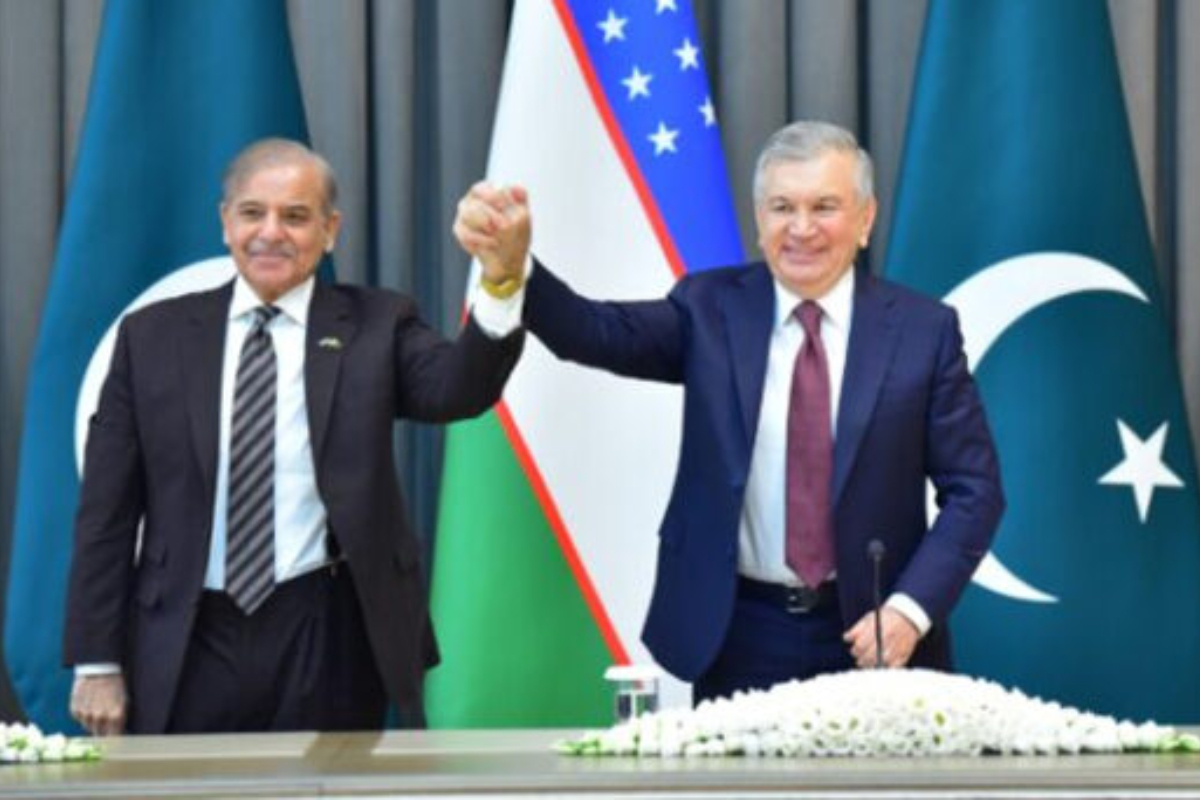Pakistan and Uzbekistan are committed to achieving a trade target of $1 billion in the coming years by enhancing transit and bilateral trade, stated the Ambassador of Uzbekistan to Pakistan, Alisher Tukhtaev.
Speaking to Uzbek media, he emphasized that both nations are actively implementing joint measures to boost mutual trade volume, accelerate industrial collaboration, and reach the $1 billion milestone in the near future.
The ambassador highlighted that efforts are underway to diversify the export and import structure, particularly in food, textile, and electrical products. He mentioned that negotiations are being held to expand the list of products under the Preferential Trade Agreement and improve interbank payments, which will help lower customs duties and facilitate trade.
To streamline cargo transportation and optimize customs processes, Uzbekistan and Pakistan are collaborating with major transport and logistics companies. Additionally, both sides have outlined a work plan focusing on joint initiatives in trade, banking, finance, transport, logistics, and cultural exchange.
Ambassador Tukhtaev noted that trade between the two countries has been growing steadily, with the total trade turnover reaching $404 million by the end of 2024. Uzbekistan aims to increase agricultural exports to Pakistan, including fruits, vegetables, grains, and textiles. Meanwhile, Pakistan’s pharmaceutical, textile, construction materials, and IT sectors hold significant potential in the Uzbek market.
The textile industry presents great opportunities for joint projects, allowing both nations to create globally competitive products. The agricultural sector also offers prospects for technology exchange, product processing collaborations, and expanded exports of fruits, vegetables, and grains to improve food security and access new markets.
The ambassador highlighted the rapid development of the IT sector in both countries, suggesting cooperation in establishing IT centers, joint educational programs, digitalization initiatives, and outsourcing services.
Regarding upcoming projects, he mentioned plans to enhance transit trade through Karachi Port, establish joint investment funds, and strengthen trade relations. Infrastructure development, logistics centers, trading houses, and industrial collaboration are priority areas in economic diplomacy.
He also emphasized the importance of continuing national industrial exhibitions, such as “Made in Pakistan” and “Made in Uzbekistan,” to showcase a broader range of products. Business forums involving entrepreneurs from both nations will serve as platforms for signing new investment agreements and contracts.
Currently, both governments are working with relevant ministries to fully implement the provisions of the Transit Trade and Preferential Trade Agreements. This includes increasing mutual trade by expanding preferential product categories and ensuring smoother movement of goods and services.
Speaking on the role of chambers of commerce, Tukhtaev noted that these institutions play a crucial role in fostering business connections and facilitating joint projects. Coordinated efforts in investment, infrastructure, and energy sectors can create a favorable business environment and lead to strategic partnerships.
The ambassador stressed the potential of regional connectivity initiatives, particularly through the Trans-Afghan Corridor, which will strengthen transport links between Uzbekistan and Pakistan while enhancing access to Central and South Asian markets.
Joint investments in transportation infrastructure, including roads, railways, logistics centers, and cargo terminals, will support trade expansion and economic integration. He also pointed out the significance of the energy sector, suggesting collaboration in renewable energy projects such as solar, wind, and hydropower, as well as gas infrastructure development.
These joint ventures will contribute to energy security and accelerate the transition towards sustainable energy sources, he concluded.



















